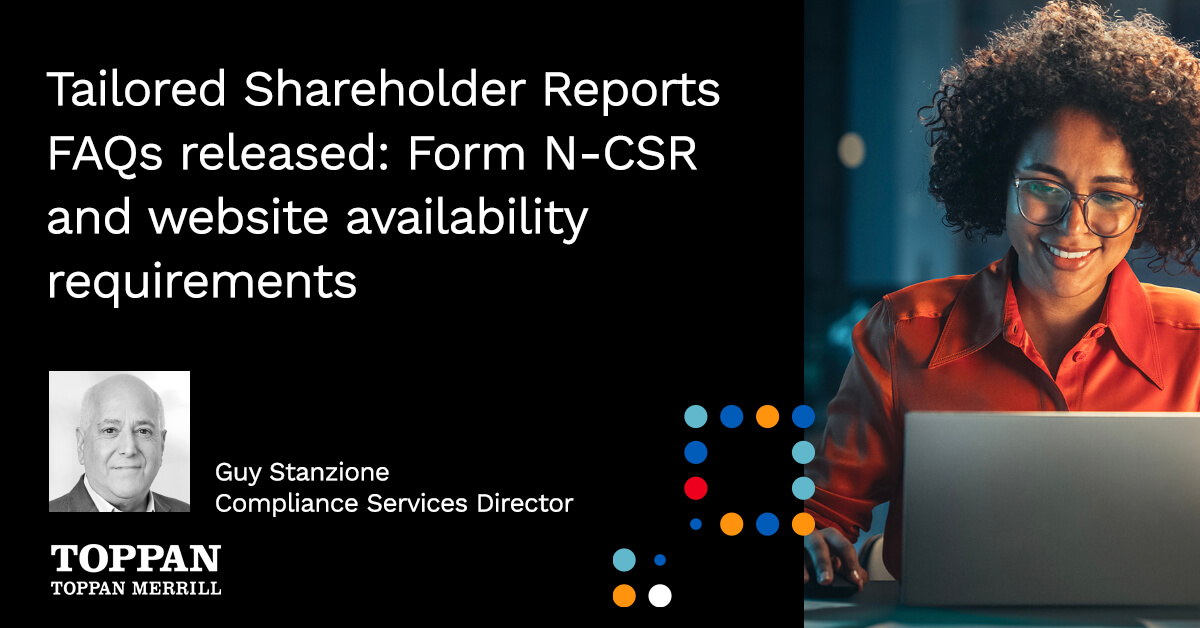
5 steps to move toward omnichannel member experiences
As more and more people enroll in Medicare Advantage there is an increase in the amount of digital savvy members....
A conversation with Guy Stanzione about the SEC Tailored Shareholder Reports mandate and tackling the data and content management challenges at the share class level.









